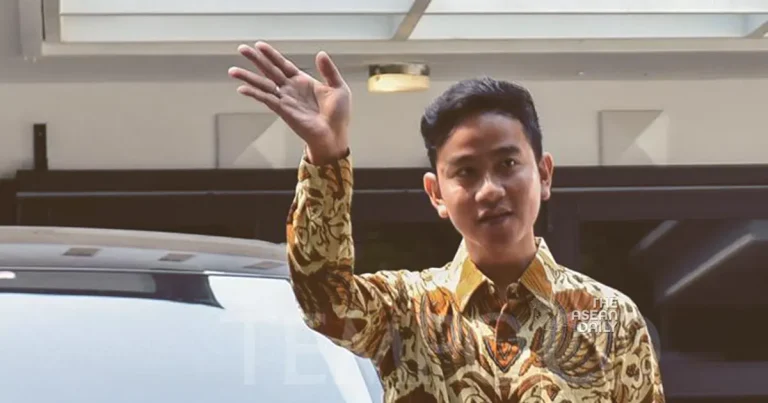3-2-2024 (JAKARTA) In a remote corner of Java Island, Indonesia, the halls of an Islamic boarding school echoed with the cries of teenage girls in white Islamic attire. Their tears flowed not for a movie star or a pop sensation but for a political figure—Gibran Rakabuming Raka, a young politician on a campaign trail to secure the vice-presidency of Indonesia.
Gibran, a slender 36-year-old with a bachelor’s degree from the Management Development Institute of Singapore (MDIS), emerged as the running mate of Prabowo Subianto, the chairman of the Great Indonesia Movement Party (Gerindra). Their ticket dominated polls, with popularity ranging between 45 and 47 per cent, overshadowing competitors Ganjar Pranowo and Anies Baswedan.
Previously, Prabowo’s popularity hovered around 37 per cent until the inclusion of Gibran in the ticket. Critics attributed Prabowo’s surge to the “Jokowi effect,” referencing Gibran’s father, President Joko Widodo, who enjoys significant approval ratings. However, Gibran’s presence proved pivotal in rallying voters.
Despite initial scepticism due to his youth and limited political experience—having served merely two-and-a-half years as mayor of Surakarta City—Gibran’s charm and connection to his father’s administration revitalised Prabowo’s campaign. His selection as running mate sparked speculation of backroom dealings, yet his impact transcended mere political lineage.
Gibran’s campaign strategy differed from Prabowo’s traditional approach. While Prabowo gravitated towards major rallies and private meetings, Gibran engaged directly with voters, cultivating a softer image for the ticket. His public appearances drew hordes of supporters, eager to catch a glimpse or shake hands with the charismatic candidate.
His marriage to former beauty queen Selvi Ananda Putri added to his appeal, presenting a youthful and relatable persona. Despite reservations about his political acumen and independence from his father’s shadow, Gibran’s performance in debates impressed observers, showcasing a depth beyond his familial ties.
However, doubts lingered regarding Gibran’s suitability for the vice-presidency. Critics highlighted his lack of tangible achievements and questioned whether he could transcend his father’s legacy. The controversy surrounding his candidacy, exacerbated by a Constitutional Court ruling, underscored broader concerns about political dynasties and ethical governance.
While Gibran’s detractors remained unconvinced, his supporters lauded his candidacy as a symbol of youth empowerment and inclusivity in Indonesian politics. Regardless of the outcome, Gibran’s emergence signalled a generational shift in the country’s political landscape, challenging entrenched norms and inspiring a new wave of aspirants.
In the picturesque landscapes of Indonesia, Gibran’s journey symbolised more than just a political campaign—it embodied the aspirations and struggles of a nation in transition, grappling with its past while striving towards a more inclusive and equitable future. As the election drew near, Gibran’s legacy resonated far beyond the corridors of power, leaving an indelible mark on Indonesia’s political consciousness.




